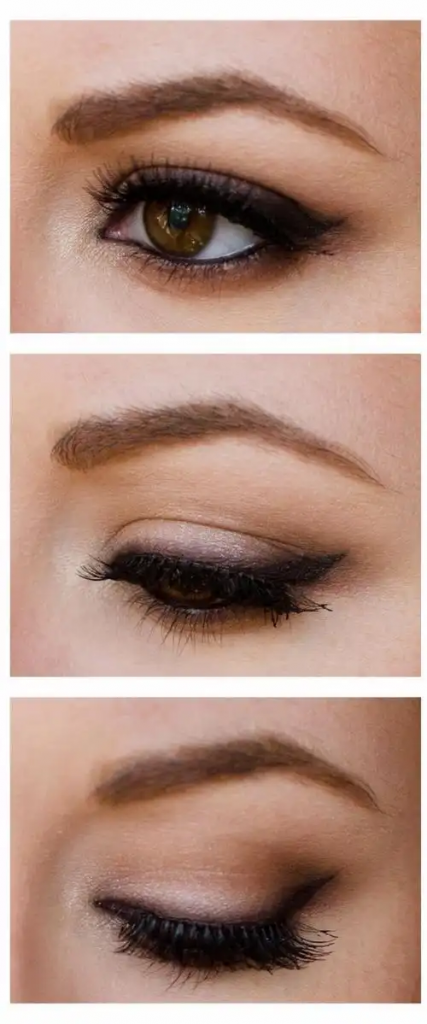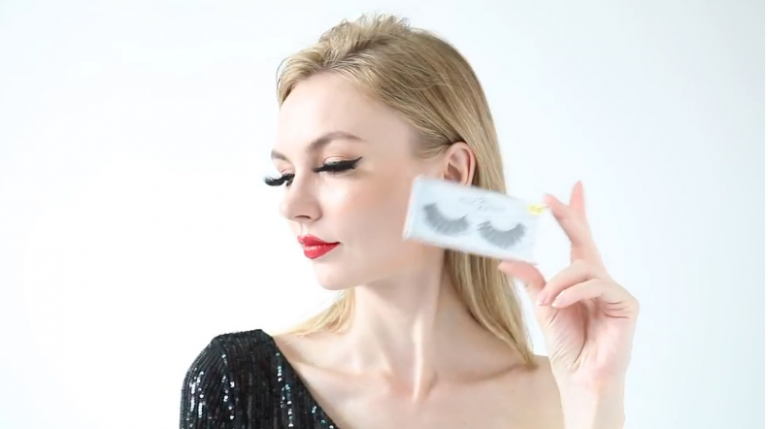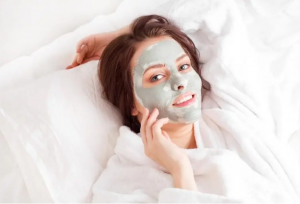If you have oily skin, you know the struggle: greasy shine by midday, makeup that slides off, and constant worries about clogged pores and breakouts. But fear not! With the right approach and products, oily skin can be managed effectively. In this guide, we’ll dive into the causes of oily skin, how to identify it, and, most importantly, how to create a skincare routine that helps you control excess oil while maintaining healthy, glowing skin.
What Causes Oily Skin?
Oily skin occurs when your sebaceous glands produce an excess of sebum. Sebum is the natural oil your skin produces to keep it moisturized and protected. However, when these glands overproduce oil, it can lead to a shiny complexion, clogged pores, and acne.
There are several factors that contribute to the overproduction of oil:
- Genetics: If your parents had oily skin, it’s likely that you will too.
- Hormonal Changes: Puberty, pregnancy, and menopause can all trigger increased oil production.
- Diet: A diet high in sugar and refined carbs can worsen oily skin.
- Weather: Hot, humid conditions can make oilier skin worse.
- Stress: Stress can stimulate oil production due to higher cortisol levels.
How Oily Skin Affects Your Appearance
Oily skin can make your face appear shiny, especially on the forehead, nose, and chin – the so-called “T-zone.” For some people, this shine can be distracting and make makeup application tricky. Moreover, excess oil can trap dirt, dead skin cells, and bacteria, leading to clogged pores and potential breakouts.
Additionally, oily skin can contribute to uneven makeup application. It might cause foundation to slip off or make it harder to achieve a matte finish. But with the right tips and products, you can easily overcome these challenges and enjoy clear, smooth skin.

Recognizing Oily Skin
Symptoms of Oily Skin
If you’re not sure whether your skin is oily, look for these common signs:
- Shiny skin, especially in the T-zone (forehead, nose, chin).
- Large, visible pores, particularly on the cheeks and nose.
- Frequent breakouts and blackheads.
- Greasy residue when you touch your skin.
- Makeup that doesn’t stay put, or slides off after a few hours.
Identifying Oily Skin Types
It’s also important to understand that not all oily skin is the same. Some people may experience excessive oil all over their face, while others may only have it in certain areas. Identifying your skin type helps you choose the right skincare products.
The Importance of a Good Skincare Routine
Oily skin requires a dedicated skincare routine to keep oil under control. A routine tailored to oily skin should focus on deep cleaning, balancing oil production, and preventing breakouts without over-drying the skin.
Why Oily Skin Needs Special Care
Oily skin is prone to clogged pores and acne, so it’s essential to avoid products that can exacerbate these issues. At the same time, you don’t want to strip your skin of its natural oils, as this can lead to dehydration and a vicious cycle of overproduction of sebum.
Key Steps in Skincare for Oily Skin
Here are the three primary steps in an oily skin routine:
Cleansing
Cleansing is the first and most important step in your routine. Look for a gentle, oil-controlling cleanser that can remove excess sebum and dirt without irritating your skin. Avoid harsh soaps that can dry out your skin, as this can cause your skin to produce even more oil.
Toning
Toners are important for balancing the pH of your skin and removing any leftover impurities after cleansing. Choose a toner with ingredients like witch hazel or salicylic acid, which can help control oil production and prevent acne.
Moisturizing
It may seem counterintuitive, but oily skin still needs moisture. The key is to opt for a lightweight, oil-free moisturizer. Gel-based formulas are ideal because they hydrate without adding extra oil.
Tips for Managing Oily Skin
Diet and Lifestyle Factors
Your diet can play a significant role in managing oily skin. Foods high in refined sugars and dairy products can increase oil production and contribute to acne. Try to incorporate more vegetables, fruits, and healthy fats (like omega-3s) into your diet, as they can help keep skin balanced.
Effective Skincare Habits
Avoid Over-Cleansing
While it’s important to cleanse your skin, over-cleansing can backfire. When you strip your skin of its natural oils, it can cause your sebaceous glands to produce even more oil to compensate. Aim to cleanse twice a day: once in the morning and once before bed.
Choose the Right Products
Look for skincare products that are specifically designed for oily skin. These products will typically be labeled as oil-free, non-comedogenic, and mattifying.
Opt for Non-Comedogenic Products
Non-comedogenic products won’t clog your pores. When shopping for skincare and makeup products, always check the label to ensure they’re suitable for oily and acne-prone skin.
Recommended Products for Oily Skin
Now, let’s take a look at some of the best products for oily skin.
Best Cleansers for Oily Skin
- CeraVe Foaming Facial Cleanser – A gentle, oil-controlling formula that won’t strip your skin.
- La Roche-Posay Effaclar Purifying Foaming Gel – A sulfate-free cleanser with a mild exfoliating effect.
Best Toners for Oily Skin
- Thayers Witch Hazel Toner – Alcohol-free and helps balance oil levels.
- Paula’s Choice Skin Perfecting 2% BHA Liquid Exfoliant – Contains salicylic acid to fight clogged pores.
Best Moisturizers for Oily Skin
- Neutrogena Hydro Boost Water Gel – A lightweight, oil-free moisturizer that hydrates without clogging pores.
- EltaMD AM Therapy – A non-comedogenic, oil-free moisturizer that also works as a primer for makeup.
Lightweight Hydrating Options
If you’re looking for hydration without the heaviness, opt for gel-based moisturizers that offer a burst of moisture without feeling greasy.
Oil-Free Formulas
Always look for moisturizers and sunscreens with oil-free formulas to keep your skin from becoming too shiny throughout the day.

Additional Tips for Managing Oil Throughout the Day
Oil-Control Face Masks
Using a clay mask once or twice a week can help absorb excess oil and tighten your pores. Look for masks with ingredients like kaolin or bentonite clay, which are excellent for oil absorption.
Blotting Papers: Your Best Friend
Blotting papers are a quick and easy way to absorb excess oil throughout the day without disturbing your makeup. Keep them in your purse or desk drawer for a mid-day touch-up.
How to Prevent Oily Skin from Causing Breakouts
Understanding the Link Between Oil and Acne
Excess oil can trap dirt, dead skin cells, and bacteria, leading to clogged pores and breakouts. By keeping oil production in check, you can help prevent acne from forming.
Tips for Acne-Free Oily Skin
- Use products with salicylic acid to help prevent and treat acne.
- Never pick at pimples, as this can cause scarring and further breakouts.
- Keep your skin clean and avoid touching your face throughout the day.
Conclusion
Managing oily skin doesn’t have to be a constant battle. By following a consistent skincare routine, using the right products, and adopting a few lifestyle changes, you can control excess oil, maintain a balanced complexion, and even reduce the risk of breakouts. Remember, the goal isn’t to eliminate oil entirely but to manage it effectively so that your skin can stay healthy, clear, and glowing.
FAQs
How do I know if I have oily skin?
You likely have oily skin if you experience shine throughout the day, particularly on your T-zone, and have large pores or frequent breakouts.
Can oily skin be caused by hormones?
Yes, hormonal changes, such as during puberty, pregnancy, or stress, can trigger increased oil production.
Does oily skin need moisturizer?
Yes! Even oily skin needs hydration. Opt for a lightweight, oil-free moisturizer to keep your skin balanced.
Are there any natural remedies for oily skin?
Some natural remedies include using tea tree oil or aloe vera gel, which have oil-controlling and soothing properties.
What should I avoid if I have oily skin?
Avoid harsh products that strip your skin’s natural oils, as this can lead to increased oil production. Also, steer clear of heavy, pore-clogging makeup products.










+ There are no comments
Add yours